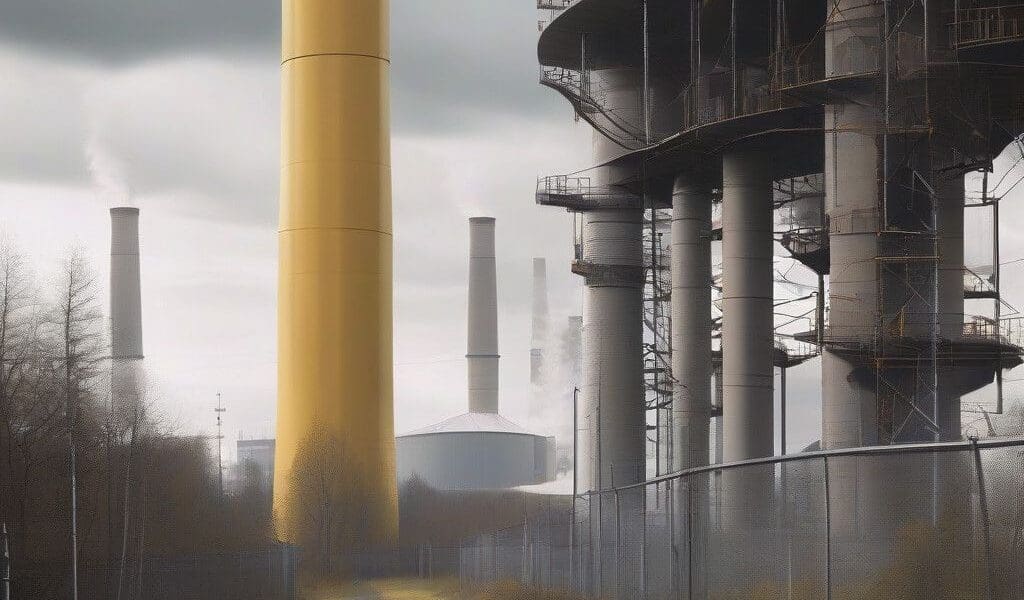Fortum Faces Rising Security Threats: Cyber Attacks and Suspicious Activities Detected
Fortum, the leading energy provider in Finland, is encountering significant security challenges, marked by a surge in cyber threats and unauthorized activities around its operational facilities. The situation was brought to light by CEO Markus Rauramo, who revealed the extensive nature of these issues, including denial-of-service attacks, disruptions in satellite communications, and sightings of drones.
Fortum operates a diverse portfolio of energy sources, including hydro, wind, solar, nuclear, and combined heat and power plants. This complexity makes the company particularly attractive to cybercriminals and malicious actors. Recent incidents have occurred not only within Finland but have also affected its operations in Sweden, raising concerns about cross-border vulnerabilities in critical infrastructure.
In response to the escalating threats, Fortum has engaged with Finnish authorities to launch investigations into these security breaches. The Finnish National Bureau of Investigation confirmed that multiple inquiries are underway, particularly focusing on activities near essential infrastructure sites. This proactive approach emphasizes the critical need for vigilance in securing energy resources when increasingly sophisticated methods of attack are deployed.
While intelligence services in both countries have remained tight-lipped about specific attackers or motivations, Fortum’s security measures have been ramped up significantly. Jari Stenius, head of security at Fortum, noted a marked increase in the frequency of suspicious activities but reassured stakeholders that, thus far, these incidents have had a minimal impact on operations. To mitigate potential disruptions, Fortum has reinforced strict access controls, increased the presence of private security, established backup systems, and is conducting regular drills in collaboration with relevant authorities.
The evidence of these threats is indicative of a broader trend affecting critical sectors globally. Energy companies are increasingly becoming direct targets for cybercriminals aiming to disrupt services or gain sensitive information. For example, attacks reported in recent years on other providers have led to operational downtime and massive financial repercussions, highlighting the urgency for enhanced cybersecurity frameworks.
Implementing comprehensive cybersecurity strategies is non-negotiable for companies like Fortum. Such strategies often include the adoption of advanced threat detection systems, employee training programs to recognize potential security threats, and collaboration with cybersecurity experts. Furthermore, sharing information across the industry can lead to improved understanding and defenses against common threats.
Given the interconnected nature of today’s energy grid, a successful cyber attack on one provider could have cascading effects, potentially disrupting services across regions. This reality underscores the importance of robust security measures, particularly as more organizations are transitioning to digital infrastructures.
Furthermore, the role of government oversight cannot be overlooked. Public authorities must establish regulations that ensure companies adhere to strict cybersecurity protocols. These regulations can mandate regular audits of security measures and compel companies to disclose vulnerabilities and past incidents.
This recent spate of suspicious activities places the spotlight on the energy sector’s vulnerability to both physical and cyber threats. As Fortum bolsters its defenses, it serves as a reminder that all players in the energy space must be vigilant. The overall resilience of our energy infrastructure relies heavily on collaboration between the private sector and public authorities, ensuring that they remain one step ahead of potential threats.
In conclusion, while Fortum’s proactive measures highlight a strong response to these emerging threats, the current landscape signals a need for continued vigilance. The partnership between companies and regulatory agencies needs to evolve to proactively counter these growing risks. In an era defined by rapid technological advancements, adapting to new vulnerabilities will be crucial for sustaining operations and ensuring national security.








